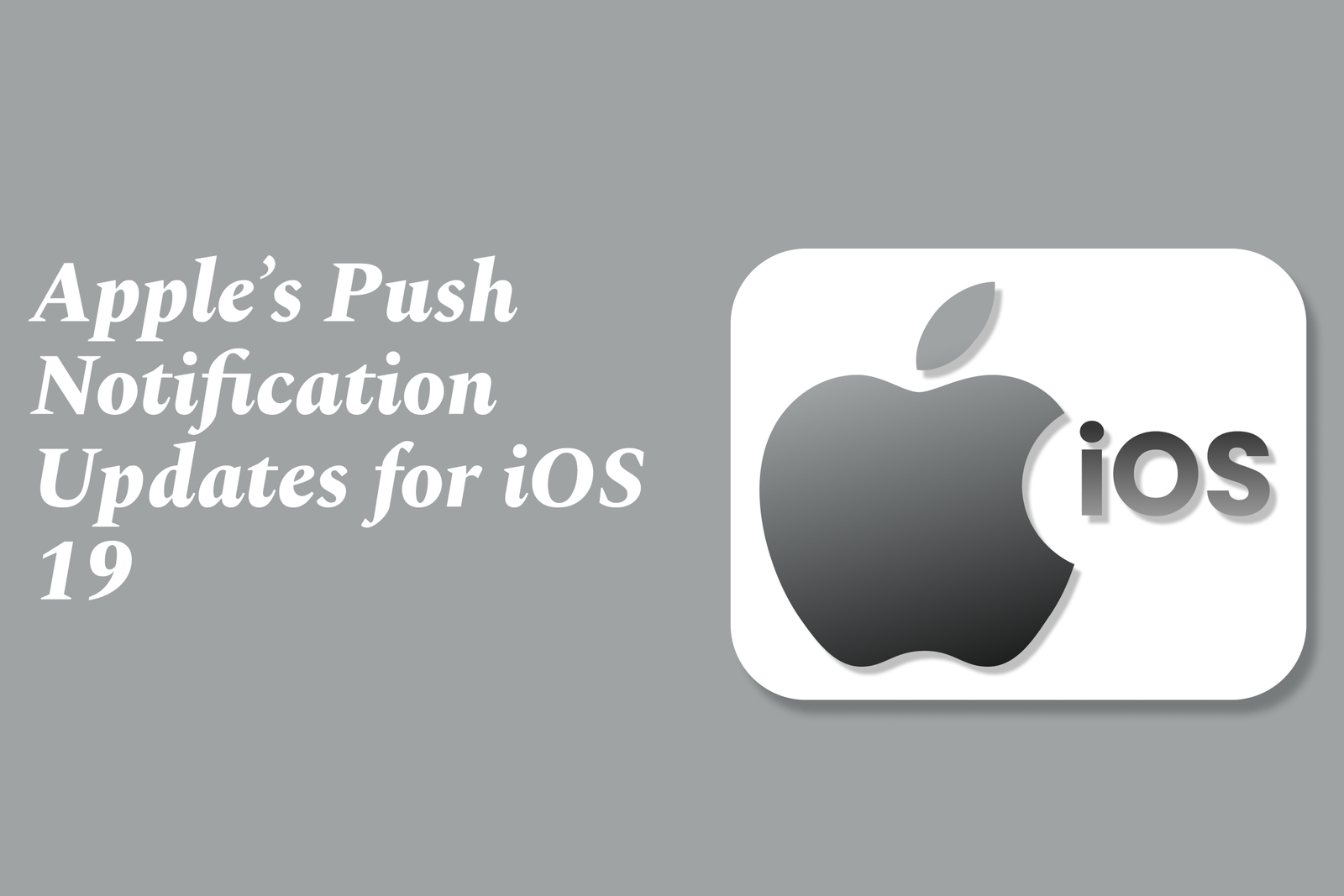Apple?S Push Notification Updates For IOS 19
Apple’s iOS 19 enhances push notifications by improving real-time alerts for email apps, especially the Mail app’s Gmail integration, optimizing background activity, and refining notification delivery for better performance, reliability, and user experience across iOS devices.
Apple’s Push Notification Updates for iOS 19
1 ) Improved Push Notifications for Email Apps
Apple has introduced changes in iOS 19 affecting how push notifications work with email apps, particularly Apple's own Mail app in relation to Gmail accounts. Users previously faced issues receiving real time push notifications for Gmail, often needing to open the app manually or wait before new emails would sync and notify.
2 ) Background Activity Management
With the update, Apple is refining background app activity. Some users reported excessive background usage from third party mail apps like Spark, which led them back to the default Mail app despite its notification limitations. The changes focus on optimizing background processes for better system performance and battery usage across iOS devices.
3 ) Limitations and Workarounds
Although manual setups using IMAP and SMTP for Gmail accounts were available, these did not consistently enable push notifications in the default Mail app. iOS 19 aims to address these gaps and improve the native experience, although there may still be transitional challenges.
4 ) User Experience Focus
The notification updates are part of Apple's broader goal to provide timely and reliable communications alerts while preserving privacy and performance. This includes automatic adjustments and smarter handling of notifications to prevent delays and missed messages.
5 ) Impact on Developers and Future Updates
App developers, especially those building on mail and messaging frameworks, should prepare to adapt their apps to the new notification standards in iOS 19. Apple encourages use of updated APIs and guidelines to ensure compatibility and user satisfaction with push notification delivery.
Summary:
iOS 19 brings notable improvements to push notifications, particularly addressing the long standing issue of Gmail email alerts on Apple’s Mail app. With a refined approach to background activity and notification management, Apple seeks to enhance user experience, system efficiency, and developer support around push notifications across its ecosystem.
https://justacademy.in/news-detail/best-flutter-payment-plugins-in-2025
https://justacademy.in/news-detail/new-features-in-flutter-4.0-stable
https://justacademy.in/news-detail/firebase-updates-for-flutter-apps
https://justacademy.in/news-detail/react-native?s-new-accessibility-widgets-rock
https://justacademy.in/news-detail/google-play-pass-subscription-news
Related Posts
Java supports GDPR and data privacy by enabling secure data handling through encryption, controlled access, and precise data management. It allows developers to minimize PII exposure, ensure data confidentiality, and design workflows that comply with data protection regulations effectively.
Java code quality tools have evolved to include advanced static analysis, integrated security checks, and AI-powered code reviews. These updates help developers detect bugs, enforce coding standards, and enhance security, streamlining the development process and improving overall code reliability.
Java remains a cornerstone in big tech companies, evolving with modern features like records, pattern matching, and virtual threads. Its robust ecosystem, enhanced performance, and growing AI integrations keep it vital for both legacy systems and innovative new projects.
Java and CI/CD pipeline optimizations streamline Java application development by automating builds, tests, and deployments. They improve efficiency through parallelization, caching, and secure secrets management, enabling faster feedback loops and more reliable, scalable software delivery.
Java supports modern cryptography standards through its flexible Java Cryptography Architecture (JCA), enabling integration of advanced algorithms like AES, EdDSA, and post-quantum tools. Libraries like Bouncy Castle offer FIPS-certified, hardware-accelerated implementations for secure development.
Java 23 enhances record patterns by enabling concise, direct destructuring of record components within pattern matching, simplifying type checks and data extraction. This improvement boosts code readability and expressiveness by reducing boilerplate in handling immutable data classes.
Java remains a top choice for mobile app backends, powering scalable, secure, and high-performance server-side solutions. Latest trends include cloud-native microservices, reactive programming, and enhanced JVM optimizations, enabling efficient, flexible, and robust mobile backend development.
Java SE 24 and LTS Java SE 21 offer enhanced features and performance, while Apache Spark 4.0.0 introduces Scala 2.13 support and advanced ML and SQL capabilities. Together, they empower developers to build scalable, high-performance data applications with modern tools.
JUnit 5 modernizes Java testing with a modular architecture, improved assertions, and seamless Java 8+ support. Beyond JUnit, tools like Mockito and AssertJ enhance mocking and assertions, creating a powerful, flexible ecosystem for writing clean, efficient Java unit tests.
Java plays a pivotal role in cloud automation tools by providing a robust, platform-independent language used to build scalable automation frameworks like Jenkins and Selenium, enabling efficient CI/CD pipelines, testing, and orchestration across diverse cloud environments.










